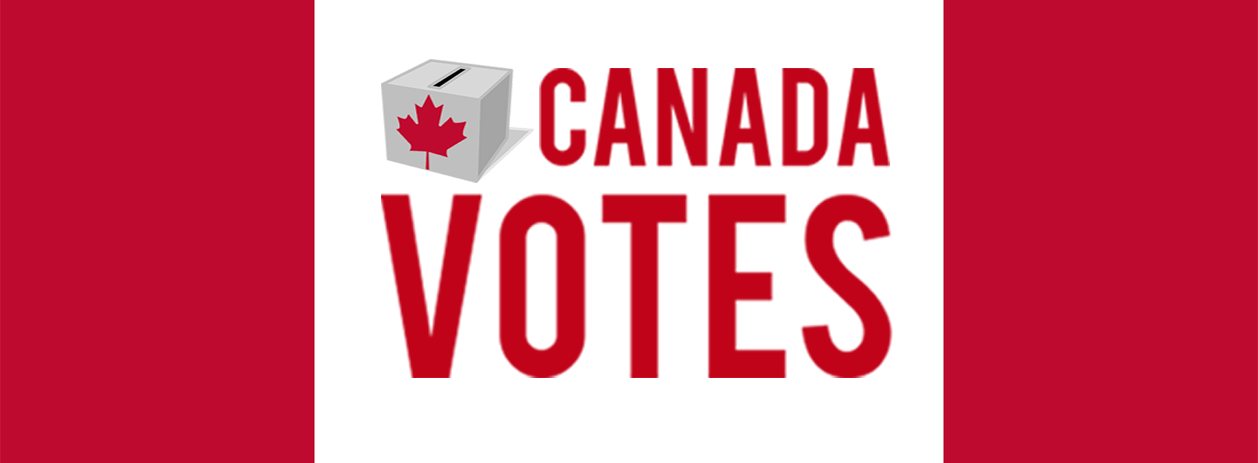Continuing this week, The Expositor is posing another weekly question to each candidate in the Algoma-Manitoulin-Kapuskasing riding and publishing their responses in our newspaper. We have asked that the candidates restrict their answer to a 1,000-word limit. Otherwise, they are free to answer in any way they choose.
The Truth and Reconciliation Commission on Residential Schools released a lengthy list of recommendations for Canadians and their government to consider and to implement.
Most Canadians, First Nation and non-First Nations alike, now agree that Canada’s long history of sending aboriginal children to (mostly) church-run residential schools, away from their communities and families, has proven profoundly misguided, if not worse.
If your party is chosen by voters to form the next government of Canada, how quickly will it move to implement or facilitate at least some of the Commission’s recommendations?
Please name, in order, the five most important and pressing recommendations of those presented with a brief description of why they are important and how they would be supported for implementation by your party in government.
André Robichaud – Conservtive

The Conservative government remains committed to improving the lives of Canada’s aboriginal people.
That is why our government continues to work to improve living conditions for First Nations and Inuit by supporting priority areas in education, women, children and families, water and housing.
The Conservatives reintroduced legislation to guarantee to people living on reserve the same protections other Canadians enjoy under the Canadian Human Rights Act. As well, the Harper government formed the Canadian Northern Economic Development Agency and introduced measures that will bring jobs to northern Canada and create opportunities and employment for aboriginal peoples across the country.
The Conservative government supported First Nation communities with urgent on-reserve infrastructure needs, concentrating on school construction, improving access to safe drinking water, and replacing crucial health and policing infrastructure.
Acknowledging how invested the Harper government is in the First Nations agenda, the Conservatives issued an apology for the Inuit High Arctic relocation and the extreme hardship and suffering that it caused.
To back up their commitments, the Conservatives promoted aboriginal skills development in northern communities; introduced updated legislation to protect drinking water in First Nation communities, and signed an historic First Nations Health Agreement.
Our government has enhanced First Nations human rights and signed The Family Homes on Reserves and Matrimonial Interests or Rights Act; worked to enhance transparency and accountability for First Nations by passing the First Nations Elections Act; and helped provide much needed financial transparency to reserves through the First Nations Financial Transparency Act.
The Conservative Government helped ensure the equitable and fair treatment of the Qalipu Mi’kmaq First Nation with the passage of the Qalipu Mi’kmaq First Nation Act.
Support to First Nations by the Conservatives was further demonstrated when the government passed Bill C-34, the Tla’amin Final Agreement Act, which gives the Tla’amin Nation more control over lands and resources, as well as self-government over their lands, resources and members.
The Conservative government passed the Sioux Valley Dakota Nation Governance Act, to prepare the Sioux Valley Dakota Nation to become the first self-governing First Nation in the prairies and the 34th aboriginal community in Canada to become self-governing.
The Harper government is making significant progress on aboriginal and Northern issues and is achieving concrete results in areas such as economic development, construction of new schools and housing, safe drinking water, and land claims.
On June 11, 2008, Prime Minister Stephen Harper offered a historic formal apology to former students of Indian Residential Schools and sought forgiveness for the students’ suffering and for the damaging impact the schools had on aboriginal culture, heritage and language.
The Harper government concluded a final settlement on Indian Residential Schools and launched the Commission for Truth and Reconciliation. Budget 2006 confirmed $2.2 billion for the Indian Residential Schools Settlement Agreement and announced almost $200 million to support implementation of the Agreement.
To date, over $1.57 billion has been distributed to over 76,000 former residential school students.
On June 16, 2010, our government announced its intention to repeal old provisions of the Indian Act that provided the authority to establish Indian Residential Schools. The announcement was made on the occasion of the Truth and Reconciliation Commission’s first national event on Indian Residential Schools.
The comprehensive $60 million five-year report included 94 recommendations.
These clearly require a great deal of consideration and it would not be responsible on the part of any government to pick the top recommendations and begin to force its priorities on the First Nations people.
That would plainly be repeating the methodology of the past.
Without consideration of the priorities and impact of applying the recommendations on the First Nations communities across Canada, a government would be ignoring the spirit of the Truth and Reconciliation Commission.
Even between and among various First Nations constituencies there will surely be a need for negotiation on a prioritizing and implementation strategy.
In my role as an economic development officer, I have a proven track record of working with First Nation communities in my area. I was part of developing a Memorandum of Understanding for economic development with Mushkegowuk Council. I helped spearhead one of the largest networking events in Northeastern Ontario for aboriginal and non-aboriginal youth. Through activities, presentations and traditional learning, the “Growing Together” Youth Gathering, now in its third year, aims to foster mutual relationships based on respect and mutual benefit.
These same principles of relationship building and respect developed here in the riding of Algoma-Manitoulin-Kapuskasing will go with me to Ottawa.
I will also ensure that we continue to make strategic and targeted investments in Northern Ontario. Some of our investments include: $1.5 million for the operations of Waubetek Business Development Corporation; $1.5 million to expand the small business centre in Wikwemikong First Nation; $500,000 to support the engineering and project management costs to develop a community-owned on-reserve wind farm in M’Chigeeng First Nation; $393,814 for the East-West Transportation Corridor Study in the Ring of Fire; $232,200 to undertake a regional economic development in fisheries, aquaculture, mining and tourism; and $71,051 for a Northeastern Ontario Aboriginal Mining Strategy.
As your representative, I will help a re-elected Conservative government continue its commitment to Canada’s aboriginal people in a collaborative atmosphere, where the priorities and concerns of the First Nations must lead the strategy.
Our government recognizes that there have been dark chapters in Canada’s relationship with First Nations. While we cannot undo the past, we can learn from it and ensure that those dark chapters are not repeated. There is no place in Canada for the attitudes that inspired the Indian Residential Schools system to ever prevail again.
Heather Wilson – Liberal
The Truth and Reconciliation Commission’s 94 recommendations would be implemented should the Liberal Party form government on October 19, 2015. Justin Trudeau stood up in the House of Commons June 2, 2015 and said, “The commission issued 94 recommendations to advance the process to close the quality of life gaps that exist, to revitalize indigenous languages and cultures, and to restore the original respectful relationship with first nations, Métis nation and Inuit peoples. The Liberal Party, today, accepts and commits to implement these recommendations.”
To put these recommendations in order of importance is impossible. It is difficult to say that education is more important than violence against women. Or that child welfare is more important than the current inequities in the health of Indigenous peoples. However, since this is the question, this is my answer.
Since there is an immediate threat to women and girls across Canada, the implementation of recommendation 41 is paramount. Both Amnesty International and the United Nations have called upon the Canadian government to take action on this issue to no avail. Indigenous women and girls experience violence at a rate of five times that of any other population in Canada and any violence experienced tends to result in more serious harm.
My graduate work investigated the violence that aboriginal women face. My research found that there are root causes of violence against aboriginal women not the least of which being racism and misogyny. The reasons that women experience violence and the implications of such violence must be immediately investigated in consultation with aboriginal organizations. The mandate of such an inquiry will be to recommend concrete actions governments, law enforcement and communities can take to understanding and solving these crimes. The current government has ignored uncomfortable truths and has done nothing to address the root causes of this national tragedy.
Recommendation number eight calls on the federal government to eliminate the discrepancy in federal education funding for First Nation children being educated on reserves and those First Nation children being educated off reserves. The federal government has chronically under-invested in First Nations education. As a result, First Nations students are falling behind in reading, writing, and numeracy, and less than half of students on reserves graduate from high school.
In August, Justin Trudeau announced a plan for $515 million per year of new investment in core annual funding for First Nation Kindergarten to Grade 12 education, rising to over $750 million per year by the end of our first mandate. Plus $50 million to support post-secondary support programs, substantial new funding to promote, preserve and enhance indigenous language and culture and working collaboratively to include aboriginal and treaty rights, residential schools and the contributions of indigenous people to Canada in classroom learning. Last month we learned that schools and facilities on reserves are not funded in the same manner as other schools. The schools are literally crumbling around the students precluding learning and advancement. We would implement an immediate new investment of $500 million over the next three years for First Nations education infrastructure.
A Liberal government would build a renewed partnership with First Nations that ensures high quality education and economic opportunity for all First Nations. As the fastest growing demographic in Canada, it is critical to our shared future that First Nations have the same education and economic opportunities as everyone else. It must be a real priority for the federal government.
Recommendation numbers one through five call on the federal government to implement child welfare practices that would reduce the number of aboriginal children in care and investigate the reasons that children are in care. We would support the funding of organizations like Kina Gbezhgomi on Manitoulin Island. The mandate of organizations like this coincide with the fifth recommendation that support children remaining in their communities with healthy caregivers in order to stay connected to their roots, culture and language. A Liberal government would ensure that child welfare organizations are funded such that delivery of such services is sustained.
Recommendation 45 calls upon the federal government to jointly develop a Royal Proclamation of Reconciliation and reaffirm the nation to nation relationship with aboriginal people and the Crown. A Liberal government would focus on developing this Reconciliation Framework by holding mandatory annual meetings between the prime minister and First Nation chiefs and establishing a Nation Council of Reconciliation. I believe that this shows a willingness to move forward together that has previously eluded federal government resulting in the current stagnant relationship and therefore, progress.
Finally, the last recommendation that I think needs attention is not included in the TRC’s recommendation. Poverty is a major problem in many First Nations communities and in turn the cause of many social problems. A Liberal government would support through increased infrastructure and innovation investment the expansion of economic opportunity for First Nation peoples. For example, the Shoal Lake First Nation on the Ontario-Manitoba border has been without an all-weather road or clean water for 17 years. Trudeau has promised to partner with the City of Winnipeg and the province of Manitoba to rectify this atrocity. Freedom Road, as it is known, would allow residents the ability to move freely to work and school without impediment.
Economic opportunity is a game changer for First Nations communities. Many communities need capital investment to move innovation forward. A Liberal government would work with First Nations communities through sector specific funding to ensure that people that are ready and willing to start up or expand have the capital funds and other resources necessary to make it a reality.
Trudeau was the only party leader to visit Chief Theresa Spence when she staged a hunger strike in Ottawa. This with the fact that he announced plans for education and infrastructure funding and spoke to the AFN General Assembly is proof that the Liberal party is willing and able to move toward reconciliation.
Carol Hughes – NDP

The release of the Truth and Reconciliation Commission’s report marked a landmark moment in Canada’s reconciliation process. Our country is trying to turn the page on many dark years and move forward towards a better future for all peoples, this report amounts to a blueprint for that.
As Canadians, we must all learn more about this sombre chapter in our history. We will not forget the testimonies and we will remember the children who never made it home to their families. The NDP remains determined to repair the broken relationship with indigenous peoples, which is the result of inaction by previous governments at the nation to nation level.
Canada must show leadership. We must ensure that formal apologies made in 2008 were not in vain. The government must act immediately in the areas of education, child protection and health care in order to put an end to the inequalities and sorry legacy of residential schools.
The report itself is the culmination of nearly six years spent examining Canada’s residential-schools history and calls for sweeping reforms to government policy and a conclusion that the system amounted to “cultural genocide.”
While how we arrived at this point must be considered, nothing will be served by partisan bickering that moves the discussion away from the job at hand. In fact there was considerable cross-party efforts between Jack Layton and Stephen Harper that led to the historic Residential Schools apology that was the genesis of the Truth and Reconciliation Commission. That said Justice Sinclair’s call for immediate action has not resulted in government’s rolling up their sleeves and getting down to work.
A New Democrat government will do just that, starting with calling an inquiry into Missing and Murdered Indigenous Women within the first one hundred days of our mandate. We do not subscribe to the belief that these are merely a series of individual crimes that should only be the subject of police investigations. These women are people. They are sisters, mothers, aunts, friends, and cousins. To view them as mere crime statistics is jaded and to dismiss the potential of an inquiry to bring about a sea-change of opinion and behaviour is short-sighted.
It is helpful to recall the example of Ipperwash when considering what an inquiry can tell us. In that instance we learned that things had to change, and they have. The biggest change came for police officers who were acting on orders from the premier’s office when they took the life of Dudley George. Since then they say they have fundamentally changed their approach to dealing with peaceful confrontation because of the Ipperwash inquiry. This shows us lessons can be learned.
There are so many challenges after decades of inaction under multiple governments that have left First Nation children to grow up with unsafe water, crumbling homes, substandard health care and education and scarce economic activities. New Democrats will address these challenges with a new respectful relationship and meaningful consultation so the damage can be reversed and a better shared future can be built.
We will create a cabinet-level committee chaired by Tom Mulcair, as prime minister, to ensure that government decisions respect treaty rights, inherent rights, and Canada’s international obligations, starting with the principles of the United Nations Declaration of Indigenous Peoples.
With respect to the Truth and Reconciliation Committee, we will take action on the recommendations on a priority basis established in consultation with Indigenous communities. That will begin with a funding contribution of over $8 million over four years to the National Centre for Truth and Reconciliation.
Among the biggest challenges that must be addressed is the unequal education opportunities that are the legacy of the short-sighted two percent funding cap that has been in place for almost 20 years. Every year students and schools have been asked to get by with less and addressing this problem is a priority for New Democrats.
We support the Shannen’s Dream campaign to guarantee quality education for First Nations students by implementing a joint process with Indigenous communities and organizations to address the education funding gap. This will include a new investment of $1.8 billion over the next four years, based on an annual escalator.
First Nations communities are facing an infrastructure deficit that is only mounting. New Democrats will work with communities to improve schools, drinking water facilities, roads, and other essential services. That starts with new investments of $447 million over four years because we know the well-being of a community flows from its ability to address these challenges.
In addition to these items we are committed to helping more Indigenous youth find good jobs. With so much being asked of First Nations when it comes to resource development it will only make sense if they are able to benefit significantly from agreed upon projects. That is why New Democrats will work with indigenous partners to ensure the ongoing success of the Aboriginal Skills and Employment Training Strategy.
Finally, we will work to restore and improve our environmental safeguards. When the Mikisew Cree and the Frog Lake First Nation challenged the government in federal court over the provisions in the omnibus budget bills C-38 and C-35 that changed the Fisheries Act and the Navigable Waters Protection Act, they were fighting for us all. New Democrats were fighting the legislation in parliament, but the majority government just rammed these oil and gas friendly bills through, despite overwhelming concern from all sides. New Democrats will reverse the damage done by these short-sighted bills and put teeth back into the environmental assessment process so that Canada protects our lakes and rivers.
New Democrats are determined to act upon the report of the Commission. We will consult with Indigenous people and establish which of the recommendations require the most pressing attention. We will commit to always pursue the truth, and to work together towards healing and reconciliation.
Calvin Orok – Green Party
The Green Party of Canada published this information in their 2015 Platform Documents, Vision Green’ and ‘Strong Communities,’ available online.
“We need to move to implement the findings of the Truth and Reconciliation Commission. The path to justice, healing and reconciliation begins with accepting a painful truth: the horrors of the residential school system constituted a policy of cultural genocide…”
True reconciliation will take time, and while we work to build a new, nation-to-nation partnership based on mutual respect and understanding, there are urgent and important steps that must be taken by the federal government to put the relationship on firmer footing.
We begin by recognizing indigenous rights and title, and will negotiate in good faith to settle land claims, establish treaties and self-government arrangements, and move to repeal the Indian Act should that be the consensus of First Nations. We will respect the rights of First Nations to take leadership of development projects on their traditional territories.”
“Creating opportunity for indigenous communities and their people means ensuring access to quality public services for all First Nations, Métis and Inuit. It requires adequate funding for housing, education, and health care, both on and off reserves. We will work to expand rural health care infrastructure by investing in telehealth and mobile medical units, to ensure indigenous communities have access to critical care.”
“The glaring exception to everything one loves about Canada can be found in the profound inequality of life on First Nations Reserves and life for off-reserve urban aboriginal people across Canada. Water that is too hazardous to drink; serious health problems from diabetes to tuberculosis, addiction, and suicide; unacceptably poor housing stock; high unemployment rates—all make a mockery of our progress elsewhere in maintaining our ‘social safety net…”
“Finally, in November of 2010, after years of stalling, the government of Canada quietly signed the UN Declaration on the Rights of Indigenous Peoples. The delay was unconscionable and embarrassing. Now action is required.”
As government, the Greens will speedily move to implement the UN Declaration. We will also restore the $5.1 billion commitment and the specifics of the Kelowna Accord. One of the central features of the landmark Kelowna Accord, reached between federal and provincial, territorial and First Nations governments in Canada in November of 2005 is the creation of ‘baselines.’ Baselines are critical to assess the levels of aboriginal health and well-being.
Something fundamental needs to shift. That shift must begin with dignity for all aboriginal peoples: respect, an end to policies of assimilation, and strong support for health and education on and off reserve. Health specialists and behavioural experts need to be trained from within communities to provide the proper support for fetal alcohol syndrome children. Work must be intensified to ensure more programs that involve elders mentoring young people.”
The Manitoulin Expositor has asked me for the top five priorities for Truth and Reconciliation. According to our published literature, Green MPs will do the following:
Support the restoration of the $5.1 billion commitment of the landmark Kelowna Accord reached between federal and provincial, territorial and First Nations governments in Canada in 2005, with the proviso that the ensuing programs do not lead to greater infringement on Aboriginal and treaty rights.
With the Kelowna Accord, Prime Minister Paul Martin and his full cabinet reached out to Inuit, First Nations and Métis organizations, and held meetings with up to 150 key people, to establish how to bring living standards up to Canadian levels and address several issues related to poverty. It was a consultative approach, which is the way to do it. The Green Party budget (available to view online with the Vision Green Platform) has $800 million dollars dedicated to First Nations, to be spent every year for five years, plus other health initiatives such as dental care and housing.
Ensure that every First Nations, Métis, and Inuit child has access to quality educational opportunities based on the expressed cultural, political, and social priorities of the First Nations, Métis, and Inuit governments following meaningful consultation. The Green Party will advocate for the delivery of health care, education, and other services in a way that incorporates traditional practices and recognizes the role of extended families and elders. The Green Party will increase access for First Nations education by removing the two percent funding cap and fully funding the program back log (at a cost of $424 million).
The Green Party of Canada will launch a full inquiry into missing and murdered aboriginal women. (The number of aboriginal women according to the RCMP report was 1,181 between 1980 and 2014. This represents 1,181 families affected.)
Our Vision Green platform also states we will:
Set up task forces to address the treatment of aboriginals in the Canadian justice system and to investigate and address the disappearance of aboriginal women; and ensure, through consultation with indigenous organizations representing the concerns of aboriginal women, that the rights of Inuit, Métis, and First Nations women are protected.
Promote aboriginal culture, language, and history as a fundamental source of Canadian identity; and support the development of aboriginal education curricula that are language and culture specific.
Personally speaking as a Kinesiologist, a focus on sports and athletics participation and recognizing the needs to honour sports heroes and to partner with other organizations is a very sound one in terms of public health and fitness. Everyone should know that Tom Longboat was the greatest runner in North America.
You should also know that the Royal Canadian Legion sponsors track and field as part of their constitution. Cost of transportation is a factor to attend sports events, but service clubs may be able to assist if governments cannot.
Fully implement the recommendations of the 1996 Report of the Royal Commission on Aboriginal Peoples, thereby embarking on true nation-to-nation negotiations on a full range of outstanding legal issues and land claims.








